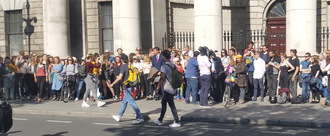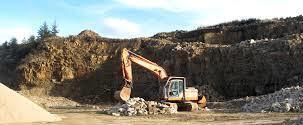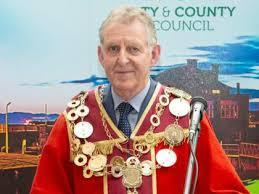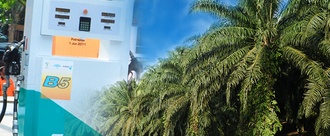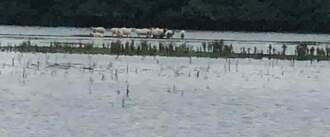- Featured
- Animal Rights
- Anti-racism
- Arts & Culture
- Children
- Climate
- Corporate accountability
- Crime
- Disability rights
- Economic
- Education
- Environment
- Food and Sustainable Production
- Gender Equality
- Governance and Transparency
- Health
- Housing
- LGBT Rights
- Mental health
- Northern Ireland
- Planning
- Privacy and Data Protection
- Rural Inequality
- Social Justice
- Trade
- Transport and Infrastructure
- Workers' Rights
- More
-
Access to JusticeVERY IMPORTANT to stop this legislation by Minister Murphy as it will effect our ability to take a court case/ judicial review. Environmental groups outline shock at proposed planning Bill. Proposed legislative changes would make it almost impossible for citizens and environmental groups to challenge poor planning decisions in the courts. Ireland’s leading environmental coalition is shocked at the Minister for Housing’s attempt to introduce new planning legislation that would make it near impossible to challenge planning decisions in the courts and hold public authorities and the Government to account. The Environmental Pillar – a coalition of national environmental organisations – learned over the weekend of worrying developments with the Housing and Planning and Development Bill 2019 that is being brought forward by Minister Eoghan Murphy TD. In sum, the proposed Bill will add numerous challenging requirements and restrictions that will make it very hard for ordinary citizens and environmental NGOs to achieve the necessary “standing” to take cases. The changes proposed in the Bill would also add to the complexity of the court process and increases the risks of exposure to significant costs to those seeking to challenge bad planning decisions. This legislation would row back on major changes introduced just a few years ago to enable ordinary people, their organisations, and environmental NGOs to challenge bad environmental decisions. Those changes were already long overdue and necessary to comply with EU law and the Aarhus Convention. The Heads of the Bill sent to the Joint Oireachtas Committee for Housing, Planning and Local Government last week are very blunt that the proposed changes are designed to make it more difficult to engage in the legal process and appears to favour developer’s interests at the cost of environmental rights. The most worrying aspects (some of which are further explored below) of the proposed Bill are: • Complete change to existing cost rules for environmental cases from a system where costs should “not be prohibitively expensive” to a cost cap rules system with court discretion. This exposes the public and eNGOs to much higher costs and uncertainty, ensuring that many will be dissuaded from bringing a case in the first place and makes it harder to engage lawyers • Change in standing rights requirements for applicants from “sufficient interest” to “substantial interest” and a requirement that they must be “directly affected by a proposed development” and “in a way which is peculiar or personal”. This is in addition to a new requirement that the applicant must have had prior participation in the planning process. • Extension of the minimum time that an NGO must be in existence before it can challenge a planning decision from 12 months to 3 years, thereby essentially ruling out newly established citizen-led NGOs concerned with local environmental issues from bringing challenges • Insertion of a new requirement that NGOs must have a minimum of 100 affiliated members, thereby ruling out the vast majority of Irish groups from bringing challenges. • Increased requirements for the “leave” stage (where you get court permission to challenge). The Heads of the Bill propose going back to the abandoned “on notice” system and adding to the tests and complexity of the leave – this adds to the costs, duration and difficulty of court proceedings. “This legislation would row back on major changes introduced just a few years ago to enable ordinary people and small but committed environmental NGOs to legally challenge bad environmental decisions, without fear of incurring eye-watering costs and extensive obstacles to accessing justice.” “The explanation for the Bill is blatant about making it harder to challenge decisions, with the Department arguing that challenges cause delays. It is bad decisions, and flawed legislation however, that are the real issue driving litigation in this country and this Bill does nothing to address that. “Given the context of costs in our Irish planning system, the size and nature of organisations and the costs in our courts, this Bill is an extermination of environmental democracy and oversight. It is particularly chilling that it comes at a time when environmental protection has never been more important, and citizens and groups are mobilising in a powerful Green Wave given the endless failures of this Government and administration.389 of 400 SignaturesCreated by Donna Cooney
-
Let Ken & Tarak go Home for XmasTwo members of Veterans For Peace, Ken and Tarak, were arrested on St. Patrick's day 2019 (March 17) for going onto the airfield at Shannon Airport carrying a banner that said: 'U.S. Veterans say Respect Irish Neutrality U.S. War Machine out of Shannon Airport Veterans For Peace' They wanted to demand that police inspect a U.S.-military contracted plane believed to be carrying U.S. troops and weapons on their way to illegal wars in the Middle East. These flights, which have been passing through Shannon Airport since 2001, are in violation of Irish neutrality and international law. The 2 men were charged with Trespass and Causing Criminal Damage at Shannon airport. After being held in Limerick jail for nearly 2 weeks, Ken Mayers and Tarak Kauff were released on €2500 bail each and forced to surrender their passports. They have been unable to return home for over 7 months. The High Court will not reconsider their application to change their bail conditions until they can show that their trial is years off, which will be the case with the current backup of cases in the Dublin Circuit Court. Changing their bail conditions is key to getting their passports restored. The process the 2 peace activists are being forced to endure is a clear attempt to punish them before any trial takes place. Major Ken Mayers served 12 years in the US Marine Corps. He is a former National Board member of Veterans For Peace and participate in veterans peace team delegations to Palestine, Okinawa, Jeju Island, South Korea, and Standing Rock. Tarak Kauff was a paratrooper in the US Army during the early sixties. He was a member of the VFP National Board of Directors for six years. He has organized veterans delegations to Palestine, Okinawa, South Korea and Standing Rock. He is currently the managing editor of Peace In Our Times939 of 1,000 SignaturesCreated by Galway Alliance Against War

-
No to the Cork LNG terminalIn 2017, the Port of Cork signed a Memorandum of Understanding (“MOU”) with NextDecade, a liquefied natural gas (LNG) development company. The MOU allows the Port of Cork to negotiate with NextDecade on the development of a new Floating Storage and Regasification Unit (FSRU) and associated LNG import terminal infrastructure in Cork harbour. We are asking the Port of Cork to rescind this undertaking in the MOU for the following reasons: 1. Climate Change To keep global temperature rise below 1.5C and to avoid catastrophic climate change, fossil or “natural” gas must be phased out of the energy mix in Europe by 2035 [i]. Claims that gas is a “transition fuel” have been discredited ͥ[ii] and recent studies show that gas sourced through hydraulic fracturing, like 69% of all gas now produced in the United States ͥ[iii] and imported to Europe as Liquefied Natural Gas (LNG), is 44% more damaging to the climate than coal [iv]. Research also states that we can’t develop any new fossil fuel infrastructure from 2019 onwards if we are to have a 64% chance of limiting temperature rise to less than 1.5C [v]. 2. Fracking In 2017, fracking was banned in the Republic of Ireland due to its devastating health and environmental impacts [vi]. If the Cork LNG infrastructure is developed it will facilitate the importation of fracked gas from the planned NextDecade export terminals in the Rio Grande Valley region in Texas. Allowing this infrastructure would be hypocritical of the Republic of Ireland as it would have severe impacts on indigenous and marginalised communities in Texas. 3. Renewables and Energy Security The Cork LNG infrastructure would also have a considerable negative impact on the developing Irish renewable energy industry [vii]. The government has stated that LNG projects are necessary for the purpose of energy security [viii]. However, recent research shows that the rapid development of indigenous renewables combined with energy storage technology is the best way to achieve this [ix]. [i] Anderson, K. and Broderick, J. (2017) Natural gas and climate change, Manchester: University of Manchester Available: https://www.research.manchester.ac.uk/portal/en/publications/natural-gas-and-climate-change(c82adf1f-17fd-4842-abeb-f16c4ab83605).html [ii] Perez, A. (2018) Global Gas Lock-in: Bridge to Nowhere. Brussels:Rosa Luxembourg Stiftung [iii] US Energy Information Administration (2019) How much shale gas is produced in the United States? Available: https://www.eia.gov/tools/faqs/faq.php?id=907&t=8 Accessed 06.11.2019 ͥ[iv] Howarth, R (2019) Opening Statement to the Joint Committee on Climate Action. Dublin: Oireachtas. Available: https://data.oireachtas.ie/ie/oireachtas/committee/dail/32/joint_committee_on_climate_action/submissions/2019/2019-10-10_opening-statement-robert-w-howarth-ph-d-cornell-university_en.pdf Accessed 06.11.2019 ͮ[v] Smith, C. J., Forster, P. M., Allen, M., Fuglestvedt, J., Millar, R. J., Rogelj, J., & Zickfeld, K. (2019). Current fossil fuel infrastructure does not yet commit us to 1.5 C warming. Nature communications, 10(1), 101. [vi] Concerned Health Professionals of New York (2019) Compendium of Scientific, Medical, and Media Findings Demonstrating Risks and Harms of Fracking (Unconventional Gas and Oil Extraction) Available: https://concernedhealthny.org/wp-content/uploads/2019/06/Fracking-Science-Compendium_6.pdf Accessed 06.11.2019 [vii] Shakeb Afsah & Kendyl Salcito (2014). Shale Gas: Killing Coal without Cutting CO2 Available: https://co2scorecard.org/home/researchitem/28 Accessed 06.11.2019 Accessed 06.11.2019 [viii] The Green News “State confirms support of Shannon LNG project” Available: https://greennews.ie/state-support-shannon-lng-pci/ Accessed 06.11.2019 [ix] McMullin, B., Price, P., Carton, J., & Anderson, K. (2018). Is Natural Gas “Essential for Ireland’s Future Energy Security”? Dublin:Stop Climate Chaos3,727 of 4,000 SignaturesCreated by Not Here Not Anywhere - NHNA

-
Stop new quarry in south KildareKilsaran have submitted an application Kildare County Council to start a new quarry in Racefield, Ballyshannon. This is a rural but buoyant neighbourhood that would be blighted if this application were to succeed. There are a lot of farmers in the local area that would be affected, as well as 3 national schools all within a few miles with 1 being only a mile away. It is this school that would be affected the most, as it is situated at the junction that the 70+ lorries per day would use and would be affected not only by the dust polution but elevated levels of exhaust fumes. We need your help in sending a signal to the council that this quarry is not wanted.220 of 300 SignaturesCreated by Iain Bright
-
The future of transport is zero-carbonMore walking Walking has been with us since humans first learned to…you get the idea. And still, there are few better ways to get around. Cities are finally waking up to walking. Car-free zones and pedestrianised areas have transformed shopping districts and town centres from New York to York. London is planning to become the ‘world’s most walkable city’ by improving signage and reconfiguring pedestrian crossings to give people shorter waits and longer crossing times when they cross the road. Walking isn’t for everyone all the time. But by making walking more attractive and easier, cities can cut congestion, improve air quality and encourage more activity in people’s lives. So many trips we take are under 2 miles (3.2kms). 42% of people agreed that they could just as easily walk these as drive them. There’s so much potential for walking! More cycling Cycling is great for cities and the people who live there. Bikes are the original ‘zero-emission vehicle’ so more people cycling helps cities respond to the twin crises of air pollution and climate breakdown. Cities are dramatically increasing the number of people who cycle by safely separating them from other road traffic. In Copenhagen, 62% of people now cycle to their place of work or study. More e-mobility Across the world, companies like Lime, Bird or Jump by Uber are rolling out thousands of electric scooters and bicycles that are paid per ride via a mobile app. These services are potentially great news for cities as they make it easier for people to access public transport. There are caveats though. These systems need to be built to last, with easy, low-energy mechanisms to keep batteries charged up. And above all, they need to operate in the public interest – integrating into public transport systems without littering the streets or endangering the public. More renewably-powered public transport Trains, buses, ferries, trams – these are the backbones of urban transport. A bus can carry far more people than a car, which means it can move far more people through a city. Fewer cars Cars are everywhere in cities today. But as we move toward more sustainable transport, this needs to change. Fewer cars will benefit general human well-being and air quality massively. And it will also free up space. Loads of it. Parking takes up 200 square miles (517km²) of Los Angeles. That’s enough to fit in a city the size of Singapore. Imagine what we could do without car parks; we could build more green space, more shops, more restaurants. The choices are endless. But cars will not disappear. We will need them for some journeys – particularly those of us with additional needs. For these, will need car clubs; cars that we rent per minute, and share with everyone. These cars will be electric, and small, to make sure they sip energy rather than guzzle it. And they can be self-driven if you want, sure.12 of 100 SignaturesCreated by Slava Digriz

-
Mayor Michael Sheahan Stand Up For Limerick!Irish Cement proposes to burn 63 types of waste in their makeshift incinerator (a troubled and aging cement kiln). This includes whole tyres, plastics, solvents, red mud from Alumina production, animal waste, and a whole lot more up to 90,000 tonnes per annum. The entire city, as well as many villages, towns and farmland where much of our food is grown is downwind of this site. The plume will be dropping its fallout over a 30km radius from the chimney stack. Due to Irish Cement's record of blowouts, and their attempts to deny responsibility, the public has lost all confidence in their ability to run a safe operation.934 of 1,000 SignaturesCreated by Limerick Against Pollution .
-
Climate Action NowClimate change is at our doorstep and not enough is being done to help the situation. Ireland's climate action plan is the ambiguous aim to reduce carbon emissions by 30% between 2021 and 2030, but I see little progress being made. As young climate activist Greta Thunberg said, "People are suffering, people are dying, entire ecosystems are collapsing. We are in the beginning of a mass extinction and all you can talk about is money and fairy tales of eternal economic growth," which truly highlights that we need to do more, and fast. I am making this petition in hopes that we can ban any non-recyclable packaging materials in Ireland by 2025 because time is valuable and we aren't feeling the heat.157 of 200 SignaturesCreated by McKinley Edwards

-
Protect Galway Market From FloodingMarket traders are experiencing a number of difficulties in our working conditions. We are dismayed and disappointed at the negative response from the Council. It is clear to us that there is no appreciation or understanding of the importance and value of the market to the city. Severe flooding in Churchyard Street , where Galway Market is located, has become a worsening issue over the past few years and gullies regularly overflow on rainy days, resulting in dismal conditions for both traders and visitors. It is becoming increasingly difficult for the traders to protect their stock and to maintain a business. As well as the flooding issues, loose paving stones in the area are a trip hazard for traders and public alike. We recently discovered that the Galway market area is excluded from the upgrading of the city centre pedestrianised zone and there is no plans to resurface the area or carry out much needed repair work to clear overloaded drains. These drains are connected to the mains sewerage system and when they overflow, they are a very unsavoury health hazard to the traders and the public. Despite repeated requests to the City Manager we have been unable to obtain a meeting with him or senior officials to discuss our issues. We urgently need to address this issue, which has become not only a hindrance to business but also a matter of public safety. This is a video about the situation - https://youtu.be/03MdmAeW97M492 of 500 SignaturesCreated by Maeve Kelly
-
Make Sustainably Sourced Palm Oil a Legal RequirementDeforestation has a detrimental impact on the people who live in the rainforest and the environment globally. The world's rainforests are home to over half of all plants and animals on earth despite the fact they cover less than 5% of it's surface. The rainforest is disappearing alarmingly quickly and many plant and animal species are going with them. The destruction of the rainforest is also a major contributor to global warming - which affects us all. The lifestyles of indigenous tribes are also at risk as the forest their livelihood relies upon is destroyed. Until such point as this is achieved, I urge you to boycott companies sourcing their palm oil unsustainably (information about which can be found via the WWF or the Ethical Consumer). Palm oil is used in a number of everyday products such as lipsticks, chocolates and soap and companies often use a number of alternative names, such as palm kernal or palmitic acid.More information on products that use palm oil can be found at: https://www.worldwildlife.org/pages/which-everyday-products-contain-palm-oil I believe that taking care of our planet is essential, not only to save endangered species from extinction but also to ensure that future generations have the same opportunity that we do, to admire its many wonders. I hope that in signing this petition you can help to lead the way in sourcing palm oil more sustainably so that our planet can breathe again.21 of 100 SignaturesCreated by Slava Digriz

-
Global Climate UrgencyThe Earth's temperature is permanently increasing and 700,000 Species are extinct, the Oceans are Polluted, BUT there is no responsible action taken by the Governments and Multinational Industries.13 of 100 SignaturesCreated by Vera Raftery
-
Plastic Free Tea PleaseThere is too much plastic in our world. We can live with oddly shaped tea bags. We promise.15 of 100 SignaturesCreated by Jennifer Harris
-
Save Our Sheep SOS!!!Today a great kindness was done by concerned citizens who rescued sheep that had been brought to Kepak Slaughterhouse Athleague for slaughter on Friday but left in dire conditions without food or shelter in rain and flooding. Having contacted both Kepac Slaughterhouse and the Department of Agriculture who didn't take any action to help these vulnerable animals and seeing that one of the sheep had already died in these horrendous conditions, these brave people put themselves at risk and went out in a Kayak to bring the 9 waterlogged sheep to safety and drier land. The sheep had to be guided to safety by following the Kayak which took immense effort on the part of the rescuers and the sheep must have been so terrified. Now Kepak insist they are coming to take them for slaughter having had zero interest in meeting their welfare needs when requested. Please share this post widely and bring to light the shocking practices of these corporates whose only interest is profit... Please let these individuals have a chance at life with the kind people who brought them to safety... The option of sanctuary is just a share away for these souls!!! Please tag the media and all animal rights groups in your posts 💚786 of 800 SignaturesCreated by Maya Wall

